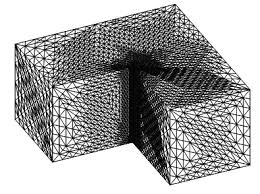Tuesday 11 September — Thursday 13 September at 9am (three 2-hour sessions), A415 Inria Paris
Files for the participants (available only during the course): AoA1 AoA2 AoA3
Mini-course by C. Carstensen (Humboldt-Universität zu Berlin, Germany):

The lecture series on the optimal rates of adaptive mesh-refining algorithms in computational PDEs provides an introduction to the mathematics of optimal rates based on the standard Dörfler marking in a collective refinement strategy. The focus is on the thorough insight into the mathematics for the simplest meaningful setting with elementary tools like the trace inequality, inverse estimate, plus several forms of triangle and Cauchy inequalities.
Solely four axioms guarantee the optimality in terms of the error estimators outlined in Part 1 of the lectures. This general framework covers a huge part of the existing literature on optimal rates of adaptive schemes and is exemplified for the 2D Poisson model problem on polygonal domains.
Part 2 gives the outline of the proof of optimal rates with linear convergence and a comparison lemma as Stevenson’s key argument for the optimality. The abstract analysis covers linear as well as nonlinear problems and is independent of the underlying finite element or boundary element method. The local discrete efficiency of the error estimator is neither needed to prove convergence nor utilised for the quasi-optimal convergence behaviour of the error estimator. Efficiency exclusively characterises the approximation classes involved in terms of the best-approximation error and data resolution and so the upper bound on the optimal marking parameters does not depend on any efficiency constant. Some general quasi-Galerkin orthogonality is not only sufficient, but also necessary for the R-linear convergence of the error estimator.
Part 3 discusses the lowest-order conforming finite element method based on triangles and provides proofs of the stability, reduction, and discrete localised reliability of the explicit residual-based error estimators.
The power of the axiomatic framework towards separate marking will be mentioned only shortly with applications to mixed or least squares finite element method and so leads towards the current research of non-standard adaptive finite element schemes.
Some References:
C-Feischl-Page-Praetorius: Axioms of Adaptivity. Computer & Mathematics with Applications 67 (2014) 1195-1253.



